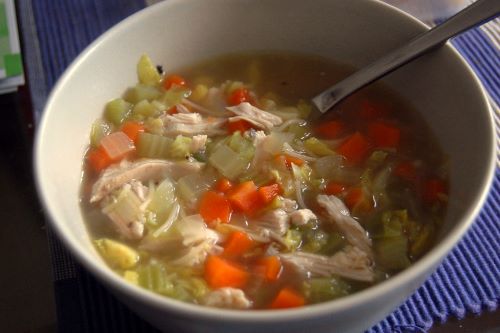Grandma's health remedies have been passed down through the generations, with many people believing in their effectiveness. However, it's important to note that not all of these remedies have been scientifically proven to work. As a matter of fact, we have just historically taken Grandma's word for it. We aren’t saying that it is bad to listen and trust Grandma, but let's dig into Grandma's health remedies that have been proven to work and those that haven't.
Grandma's Remedies That Probably Work:

- Honey for a sore throat: Honey has been shown to be effective in reducing the severity of a sore throat. It has antimicrobial properties that can help kill off bacteria and reduce inflammation. Plus, its thick, sticky consistency can help coat and soothe the throat.
- Honey for a cough: Honey has been traditionally used as a natural cough suppressant. Some studies have shown that it can be effective in reducing coughing in children, especially when used as a bedtime treatment. However, it is not recommended for children under the age of 1 due to the risk of botulism. Botulism is a rare but serious condition in which a toxin attacks the body’s nerves; 110 cases are reported in the US every year. For adults, honey can be a good option for a natural cough remedy, but it is not a substitute for medical treatment if you have a severe cough or underlying health condition.
- Ginger for nausea: Ginger has long been used as a natural remedy for nausea. It works by blocking certain signals in the brain that trigger feelings of nausea and has been shown to be effective in reducing nausea caused by motion sickness and morning sickness.
- Turmeric for inflammation: Turmeric is a spice commonly used in Indian and Middle Eastern cuisine. Some studies have shown that turmeric and its active ingredient, curcumin, may help reduce inflammation in the body. However, more research is needed to fully understand the potential anti-inflammatory effects of turmeric and how it may be used as a treatment for inflammation. It is important to note that turmeric is typically consumed in the diet in small amounts and is not a substitute for medical treatment. If you are experiencing inflammation, it is important to speak with a healthcare provider for proper diagnosis and treatment.
- Garlic for high cholesterol: Garlic has been traditionally used to lower cholesterol levels. Some studies have found that it can modestly reduce total cholesterol and low-density lipoprotein (LDL) cholesterol, which is the "bad" cholesterol. However, the effect may be small, and more research is needed to fully understand its potential benefits. It is not a replacement for medication and lifestyle changes recommended by a healthcare provider to lower cholesterol.
- Taking a warm bath with Epson salt : Taking a warm bath with Epsom salt can help relieve muscle pain and tension because the salt contains magnesium sulfate, which is easily absorbed through the skin. Magnesium is an important mineral that plays a role in muscle and nerve function. When the body is deficient in magnesium, muscle cramps, tension and pain can occur. When you soak in an Epsom salt bath, the magnesium sulfate is absorbed through your skin and replenishes the magnesium in your body, helping to relax your muscles and reduce pain and tension. Additionally, the warm water of the bath can also help to relax muscles and improve blood flow, which can further aid in reducing muscle pain and tension.
Grandma's Remedies That Most Likely Don’t Work:

- Chicken soup for a cold: While chicken soup may be a comforting food when you're feeling under the weather, it's not actually proven to help cure a cold. In fact, there is no scientific evidence to support the claim that chicken soup can help alleviate cold symptoms. However, there is some evidence that chicken soup can help alleviate cold symptoms. The hot liquid can help to clear mucus from the nose and soothe a sore throat. Additionally, the vegetables in the soup provide nutrients that can help support the immune system. However, chicken soup is not a cure for the common cold and will not necessarily shorten the duration of the illness.
- Castor oil for constipation : Castor oil has been used for centuries as a natural remedy for constipation. However, there is little scientific evidence to support its effectiveness. In fact, the use of castor oil as a laxative can lead to potential side effects, including cramping and diarrhea.
- Vicks VapoRub for a cough: Vicks VapoRub is a popular over-the-counter ointment that is often used to alleviate the symptoms of a cough. However, studies have shown that it may not be effective in reducing the severity of a cough or improving breathing.
- Cold water for fevers: It is believed by some that immersing oneself in cold water can help to lower a fever, but this is not true. In fact, taking a cold bath or shower could actually raise your body temperature and make the fever worse. Some ways to help a fever is to stay hydrated, rest, and use fever-reducing medication as recommended by a healthcare provider.
Overall, it's important to remember that while some grandma’s health remedies may be effective, others have not been proven to work. If you're considering using a natural remedy to treat a health condition, it's always a good idea to speak with a healthcare professional first. They can provide you with guidance on the most appropriate treatment options and help you make an informed decision.
 US Dollars
US Dollars
